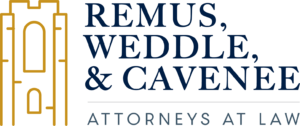What is commercial litigation, and how does it affect my business?
Commercial litigation involves legal disputes related to business operations, such as contract breaches or intellectual property issues. It can significantly impact your business’s financial and operational stability.
Can I sue for breach of a verbal contract in Maryland?
While written contracts are preferred, certain types of verbal contracts can be enforceable under specific conditions. Consulting a lawyer is crucial to determine the viability of your case.
What are business torts, and how do they differ from contract disputes?
Business torts involve wrongful acts that cause harm, such as fraud or interference with business relations, and are distinct from contract disputes, which focus on agreement breaches.
How do I protect my intellectual property from disputes?
Protecting intellectual property involves registering trademarks, copyrights, and patents, and consulting with a lawyer to ensure your rights are safeguarded.
What options do I have for collecting unpaid accounts receivable?
Options include negotiation, mediation, or legal action. A lawyer can help determine the best approach for your situation.
What constitutes construction litigation, and how can it be resolved?
Construction litigation involves disputes over construction projects, such as payment issues or defective work. Resolution methods include mediation, arbitration, or court proceedings.
How do I file a consumer protection complaint in Maryland?
You can file a complaint with the Office of the Attorney General’s Consumer Protection Division or local consumer protection agencies like Montgomery County’s Office of Consumer Protection.
What are common types of professional malpractice claims?
Professional malpractice claims often involve negligence or breach of duty by professionals like doctors, lawyers, or accountants.
Can I sue for defamation in Maryland?
Yes, but proving defamation requires showing that false statements were made with malice or negligence, causing harm to your reputation.
What are the key steps in forming a new business in Maryland?
Key steps include choosing a business structure, registering with the state, obtaining necessary licenses, and drafting foundational documents like bylaws or operating agreements.
What are fiduciary duties in corporate governance?
Fiduciary duties require corporate directors to act in good faith, in the best interests of the corporation, and with reasonable care.
How do I resolve partnership disputes?
Resolution methods include negotiation, mediation, or legal action. Consulting a lawyer can help determine the best approach for your situation.
What compliance reviews should my business conduct regularly?
Regular compliance reviews should cover legal obligations, regulatory requirements, and internal policies to ensure your business operates legally and ethically.
What services can an outside general counsel provide?
An outside general counsel can offer legal advice, draft contracts, and assist with compliance and risk management.
How do I resolve property disputes over easements or adverse possession?
Resolution methods include negotiation, mediation, or court proceedings. Consulting a lawyer is essential to understand your rights and options.
What are the responsibilities of a homeowners association (HOA)?
HOAs manage community properties, enforce rules, and handle disputes among residents.
What are my rights as a landlord or tenant in Maryland?
Rights include fair treatment, security deposit regulations, and eviction procedures. Consulting local laws or a lawyer can provide specific guidance.
How do I navigate zoning disputes or issues?
Navigating zoning disputes involves understanding local zoning laws, possibly seeking variances, and consulting with legal professionals.
What are the differences between arbitration and mediation in dispute resolution?
Arbitration involves a binding decision by a neutral party, while mediation seeks a mutually agreeable solution facilitated by a neutral party.
Can I use alternative dispute resolution methods for employment disputes?
Yes, methods like mediation or arbitration can be effective for resolving employment disputes without going to court.
Important Note: These responses are for informational purposes only and should not be considered legal advice. It is always advisable to consult with a qualified attorney to address specific legal issues or concerns.
